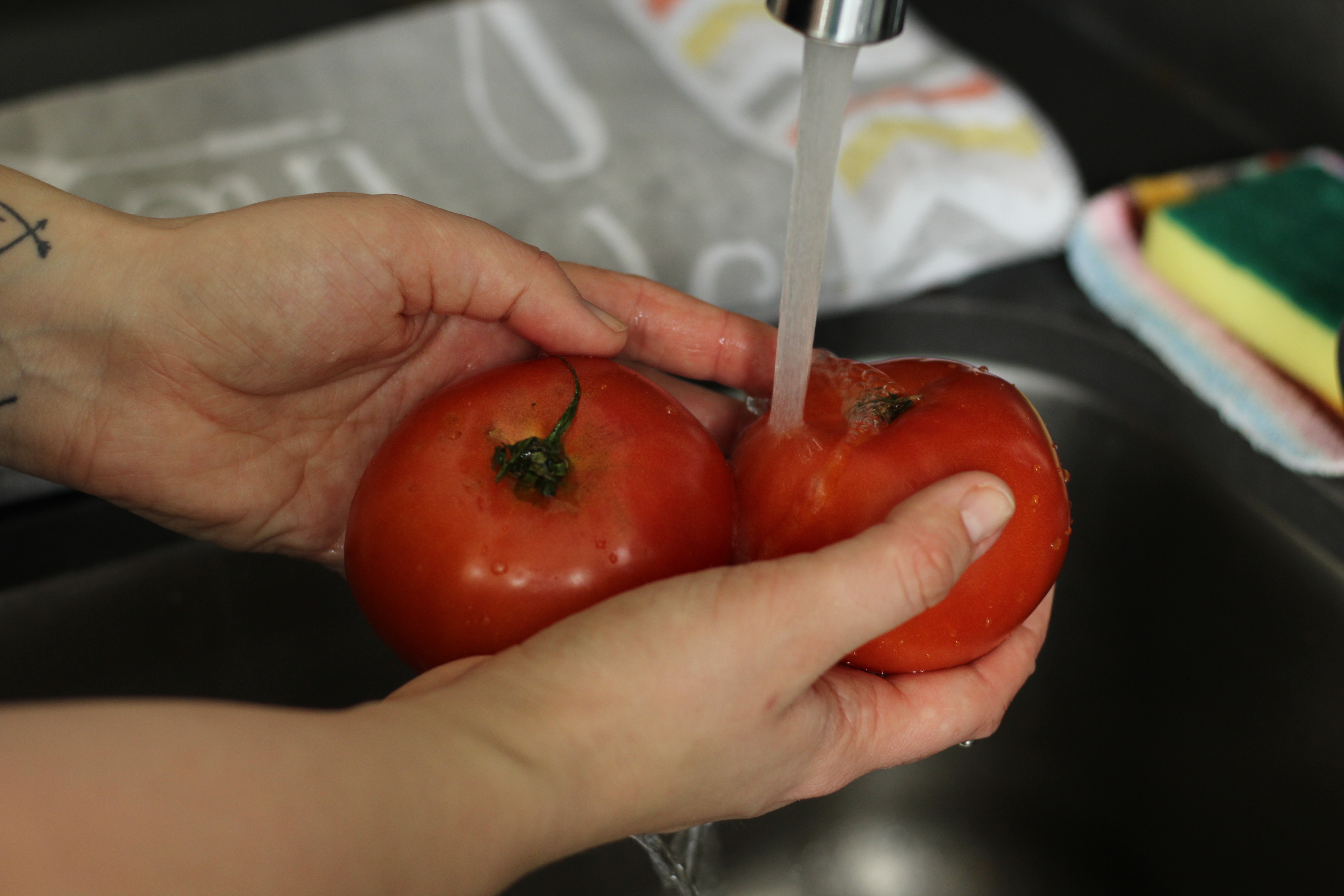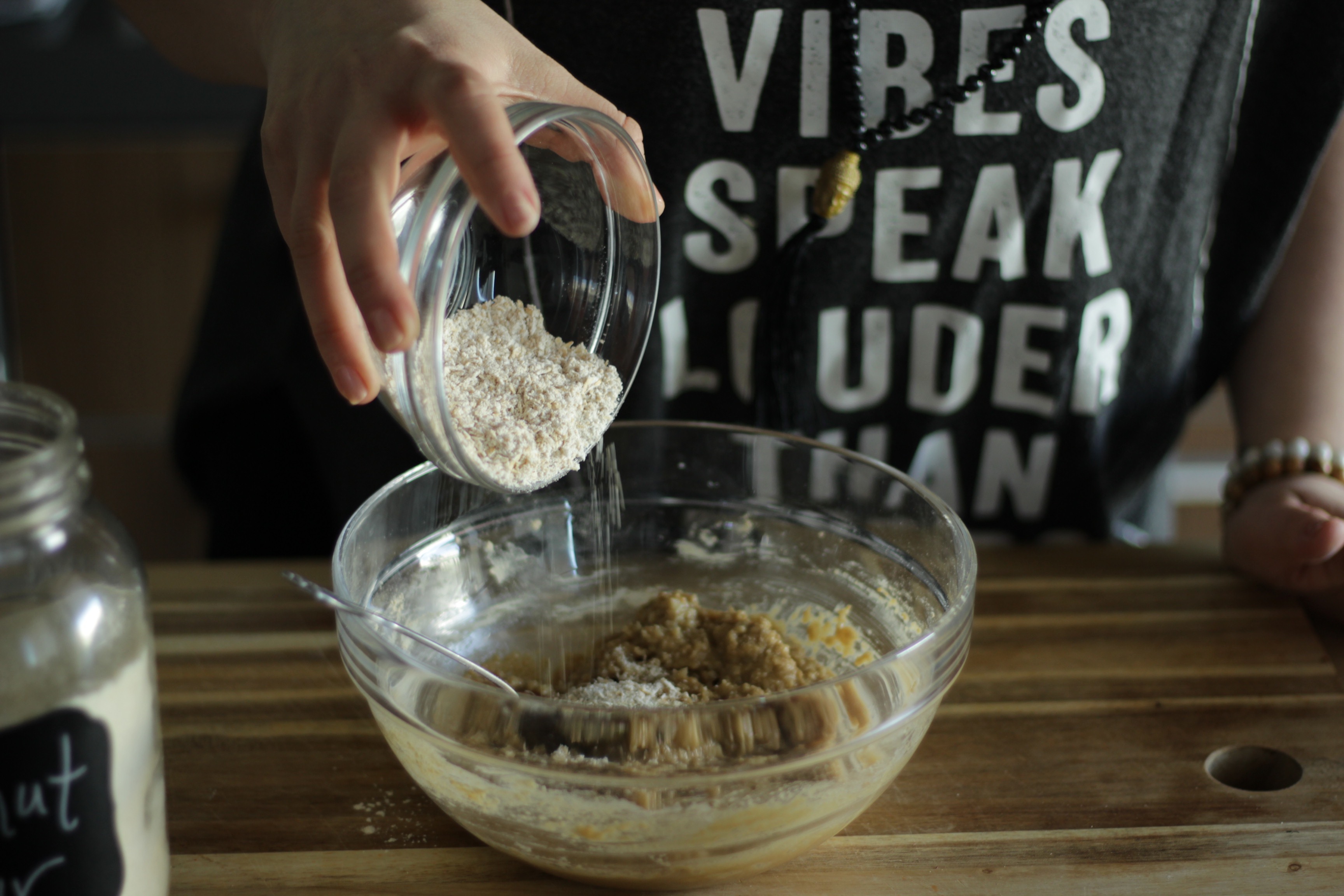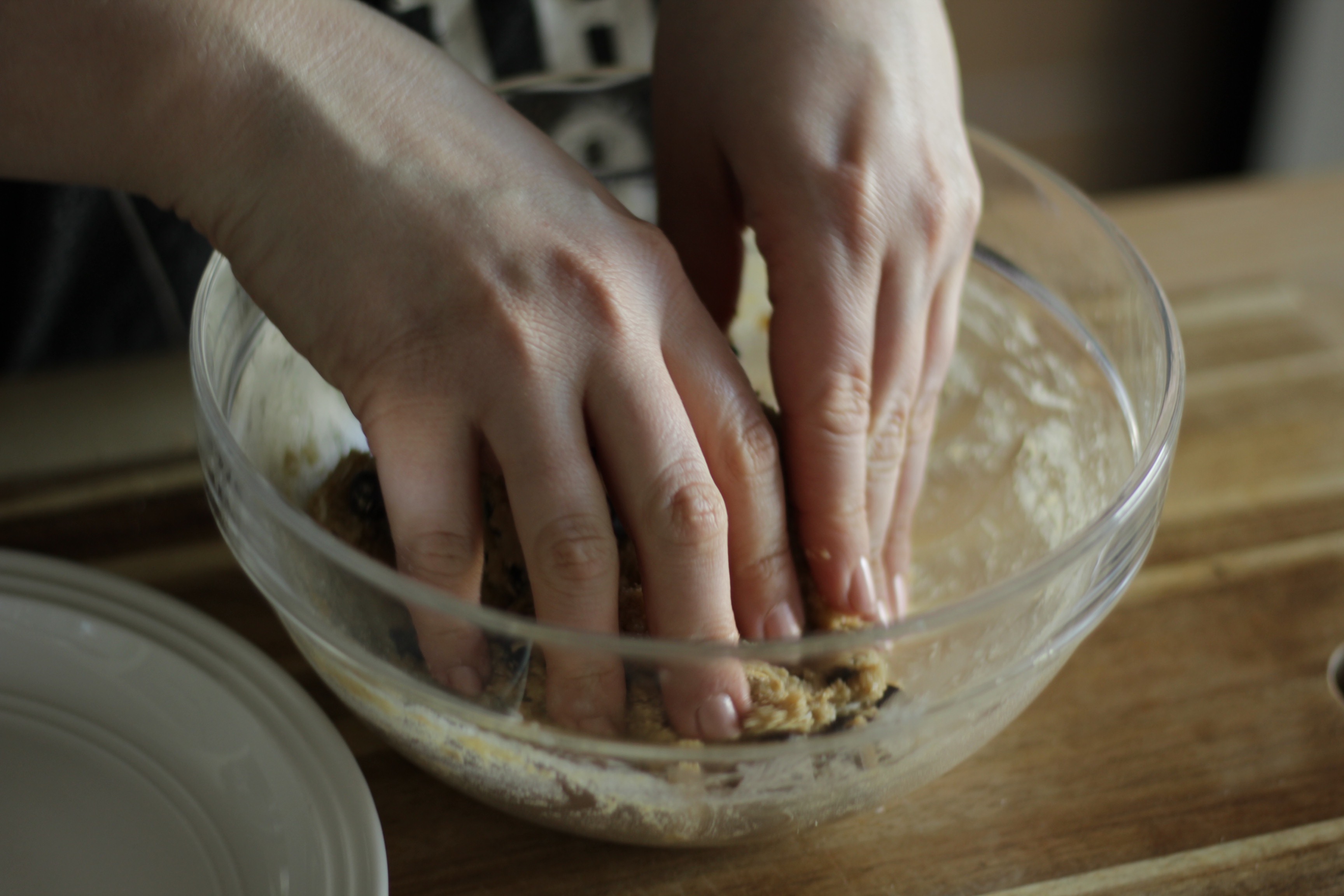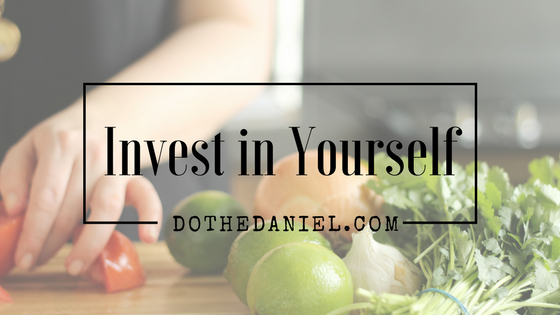As a Nutritionist, I get asked a lot of questions about how to stay on track with your health without blowing up your wallet into a million tiny pieces. Yeah, I get it – the health industry can be expensive sometimes. But what you invest your time, energy and money into, is indicative of what really matters the most to you. And frankly, I feel like investing in myself first is always the best option. With that said, do you need to break the bank every time you wanna do yoga while eating kale on a mountain (wait, do people actually do that)? Heck no! You don’t have to spend hundreds of dollars on new kitchen equipment. I was recently asked how much someone should spend on a new blender and I told them that the quality of the product is more important than the price tag. I also told them they should read some reviews (like this oster blender review) to educate themselves on the best product for their needs rather than just buying the most expensive product. Being healthy doesn’t have to cost an arm and a leg!!
Now, just as it’s important to take care of your body, it’s also key to make sure that you’re working on your finances as well. These things take time, just like achieving your health and fitness goals! Sticking to a budget and making sure that you’re on top of your personal finances will set you up with a great foundation in order to ensure that you’re making the most out of your healthy lifestyle, while also saving for your future. While we’re on the topic of finances, this is an aspect of some people’s lives that can be quite stressful to deal with. It then comes as no surprise to find that some people may have decided to check out sites like personal money network, in the hopes of finding a potential solution to this temporary setback. Once this is managed, being able to spend just that little bit extra on leading a healthier lifestyle may be worth it, and hopefully no stress involved.
Stress is one of the worst things for your health – it can trump all of the hard work you’ve been doing! So make sure that you’re utilizing the tools you need in order to minimize it, as much as humanly possible. We all have our #GuiltyPleasures, don’t we? Alongside having a solid baseline for managing your finances, here are some great ways to stay healthy on a budget!

The 3 Ps
It’s important to make sure that you Plan, Prepare and be Proactive!
Plan your budget: Before you even start to think about how you want to spend your money, you need a plan. An important part of managing your personal finances is being sure to review your credit report, just as you would with your online bank statements and credit card bills. Keeping track of your spending, putting aside savings and managing your credit, are all essential to your financial health. With Capital One’s Credit Keeper™, you can have access to your TransUnion® credit score for free. You can also keep track of your score and see how it changes over time, without damaging your score. Oh and did I mention that it’s free to use? This is good news for your budget, so you can get back to focusing on your health! Also, there are credit building programs that are specifically designed to teach Canadians how to build or rebuild their credit and improve their credit score. There are a number of reasons why people could be struggling with bad credit. If you have found your credit card debts are piling up it might be worth learning about other credit card consolidation options.
Prepare your food in advance: You may have heard of meal prepping before, well it freakin’ works! Choose one day a week where you know you’ll have some time to cook a few meals, to portion them out for the week and to freeze some to grab-and-go for later. If you’re into smoothies, you can portion out your ingredients into ziplock baggies so that you can just dump them into your blender in the morning and then add in the wet ingredients. Easy peasy!
Be Proactive with your health: If you have a car, you’re going to bring it in for regular tune ups – right? Well, the same goes with your physical and financial health. Make sure that you stay on top of both of these things before they become a bigger issue! If you want to save money throughout the day, bring your food with you to work and always have healthy snacks on you. That way you avoid the temptation of spending more money on food that may set you off track.

Keep it Local
Cutting your travel time from farm to table not only helps keep you healthier, as the nutrients are at their freshest, but it can also help your wallet. Heading into farmers markets or smaller stores that carry local products not only supports your local economy, but are generally better priced and sometimes better quality! There also may be regional meat and produce delivery companies who can deliver organic food in larger quantities right to your doorstep. Costs are generally lower than if you were to buy in store, due to the sheer amount they are delivering across the area.
Speaking of local, there are lots of great resources within your area to learn more about healthy money management! Check out any of the events or workshops taking place across Canada during Credit Education Week (Nov. 6th to 10th) and beyond. TV’s Colin & Justin also hosted a panel event that you can check out here. As November is Financial Literacy Month, Capital One and Credit Canada are committed to providing financial literacy by offering special programs and easy access to information.

Live it Up at Home
Listen, some of you just may not be into cooking. But, I would suggest looking up easy recipes that can be thrown together in a pinch, saved to be eaten as leftovers and / or frozen for later! Eating out all of the time can be rough on your spending and on your body. Yes, there are lots of healthy options out there, but if you break down the ingredients, you can likely make something very similar at home for less moulah. I would suggest saving those meals out for special social occasions, but be sure to look up the menu online in advance to see what healthy options there are out there for you! If you are taking on a lectin free diet, you will want a survival guide for eating out and finding lectin free restaurants.
“According to a study on financial guilty pleasures, Canadians overwhelmingly admit that restaurant food is their most popular indulgence, with 72 per cent dining out and 71 per cent ordering takeout more than a few times in a typical month – and spending upwards of $199 on this each month. After restaurants and takeout, Canadians most frequently treat themselves to daily coffee purchases (50 per cent), online shopping (44 per cent), clothes shopping (33 per cent) and beauty services (23 per cent).” (Newswire)
Now, when it comes to fitness, there are plenty of fantastic free activities that you can do right from your home. Walking, hiking, biking – anything outdoors is great! In to something different? You can stream online workouts or join in on them with friends. If you’re looking to save money, there are options like Class Pass, that allow you to join in on classes for a smaller fee than taking the class on it’s own. Joining in on activities with a support system will help to keep you accountable as well!

Keep it Simple, Silly
Okay, listen, kale is awesome. But so is spinach, arugula and beet greens! Let’s not forget about all of the rest of the fruits and veggies out there that offer an array of different beneficial nutrients. You don’t need to jump on the latest trend in order to be healthy. And sometimes, these trends can affect the pricing of these items, so be aware of marketing.
Eating copious amounts of coconut oil won’t help if you don’t balance out the rest of your diet. Yes, the latest research does affect the next wave of health marketing – and for good reason (for the most part). But, remember that whole food is key and processed crap is… well, crap. It’s not rocket science, people. Just eat real food. Don’t consume kale-infused vodka thinking this will be your greens for the day (yes this is really a thing) – just eat actual kale. Hi.

Make Time for YOU
Like I mentioned before, stress can trump all of the hard work that you’re up to while trying to stay healthy and balance that budget! It doesn’t cost anything to exercise your boundaries and to take time for yourself. The goal is to work smarter, not harder. That way you can continue to make the most out of every experience. Just like the rules of finance, you must pay yourself first. You’re of no use to anyone if you can’t take care of yourself. So, like the flight attendant instructs, you’ve gotta secure your mask before anyone else’s or you’ll likely just pass out and nobody is safe. That got a little crazy there for a minute, but you get my point. I hope.
Now that you have some quick tips to stay healthy on a budget, it’s time to get started! There’s no need to break the bank by trying to stay healthy. With tools like the Capital One Credit Keeper, you can be sure that you’re starting from a good place and then building onto your life from there. With a whole life approach, you can achieve a balance that keeps your health, mind and wallet in check!
Also, be sure to follow along with my Instagram account! For more information and helpful tips, make sure to stay up to date with all things Health & Nutrition on my website, Catherine’s Cabinet.
Don’t forget to sign up for the DoTheDaniel.com Newsletter
In health,
Catherine Sugrue, CNP
Holistic Nutritionist
